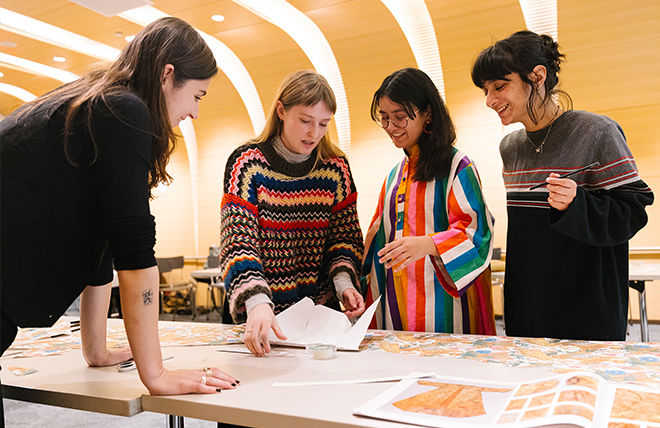As an institute for advanced study of the cultural history of the material world, Bard Graduate Center is defined by the way it relates teaching, research, and exhibitions.

At the center of our field of vision is the material world—the ways it has shaped human experience and relationships in the past, and how the past informs the present and future in new or unexpected ways. Bard Graduate Center shares an intellectual foundation with innovative and transdisciplinary historical schools that emerged in the early twentieth century. Our mission is to develop new approaches to social and cultural history informed by material things as well as by textual sources. Even further back lies the work of collectors, connoisseurs, and antiquarians who were among the first scholars to take objects seriously as both evidentiary and aesthetic documents. These lineages are relevant for our study of all regions of the world, and underpin our broad global and chronological scope. Graduate education in small group seminars is informed by faculty research. Many of our exhibitions are also faculty-initiated and developed through dedicated research seminars and direct student participation.
Combining the freedom and focus of a specialist institute with the teaching, research, and gallery resources of larger academic and museum institutions, Bard Graduate Center integrates object-based learning with cross-cultural and multi-disciplinary inquiry.

Susan Weber
Founder and Director




















